Gardening doesn’t start with the planting of seeds.
Prepping the soil and preserving its fertility are two of the most essential things to consider before you think of planting. The quality of soil helps our plants to grow. Consequently, it improves our quality of life through the healthy air we breathe. In short, healthy soil accounts for healthy living, environment and plants.
Do you want a healthy start for your plants? Would you want the soil to give the best jump-start on the season? This way, you can conserve soil fertility and improve its quality. I’ve got a list of practices that you should stop right now.
7 Bad Practices That Threaten The Soil
Tilling the Soil
In my almost a decade of gardening and homesteading, tillage has been a no-no.
If you want to maintain the long-term productivity of the soil, it’s time to stop tilling the fields. One grave thing tillage does to your soil is disintegrate its structure and reinforce the rate at which the soil loses its organic matter. This organic matter also decomposes very rapidly once you till the soil.
I’m sure you wouldn’t want to sit down and see the habitat of helpful organisms on your garden soil destroyed, would you?
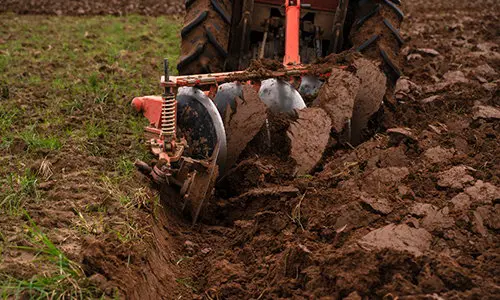
Applying Pesticides Should Stop Right Now
Stop the use of pesticides on the soil. Pesticides generally degrade soil biodiversity. This pest control procedure only demotivates the soil and reduces its productivity.
Once the variety of soil-bound fungi and bacteria is destroyed, the soil becomes infertile and unproductive. The topsoil becomes exposed, thus losing its quality. As a result, your garden plants may experience stunted growth and low yield. What a bad season it’ll be!
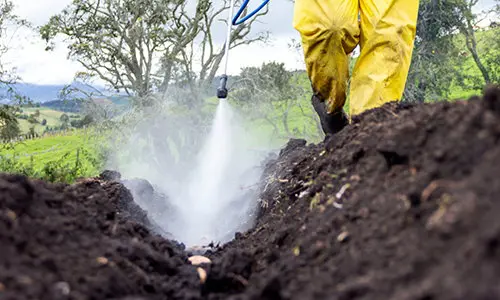
Cultivating Steep Slopes
If tilling is an enemy to root growth and soil quality, then cultivating steep slopes greatly threatens the soil’s overall health.
Steep slope cultivation results in rocky desertification. However, it starts with soil loss and bedrock exposure due to accelerated erosion and increased runoff on the soil. As more materials dissolve and are transported, a steeper slope will reinforce the inflow of the speed and number of unwanted items into your garden.
Digging Soil for Gardening
You may have heard a million reasons you should dig the soil for seeds. And we may be at crossroads here if you won’t compromise. But, I want to tell you that digging is a dangerous practice that can potentially destroy the quality of your garden soil.
First off, harsh digging exposes the topsoil. It’ll also cause erosion to threaten the soil’s health. I love building multiple no-dig fields in my garden to avoid disturbing the soil itself.
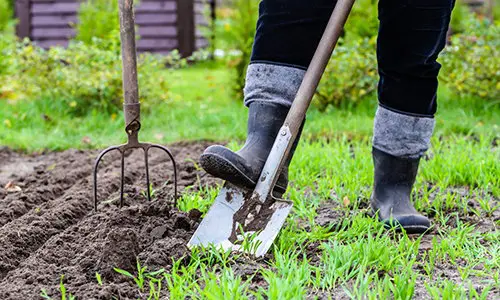
Soil Compacting
This is one area I think most gardeners are complicit. Compaction is an unhealthy farming activity that can affect plants and the soil.
Your plant roots need to penetrate the soil and have a solid foothold on the soil. However, this won’t happen because of the compaction increase in the soil density. Air will be displaced from the pores between the soil grains, restricting the root capacity to penetrate the soil moisture and nutrients. Hence, their growth becomes stunted.
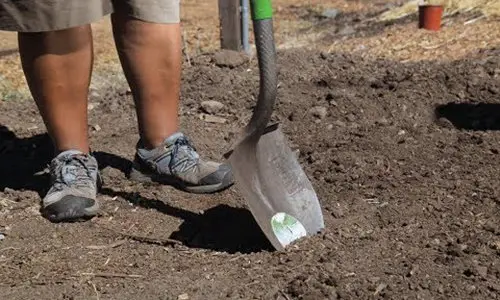
Adding Hard Chemicals and Fertilizers
If you’re in the category of people who think the consistent application of chemical fertilizers is good for the soil, you may have to rethink. I’ve talked about the danger of pesticides; adding fertilizers and hard chemicals to the soil has more severe consequences.
Chemical fertilizers cause soil acidification and crust. When soil acidifies, its pH changes, and the contents of humus and organic matter significantly reduce. The soil needs these contents to help plant growth. But the lack of them increases the spread of pests, thereby causing the soil to release greenhouse gases.
Related: 10 Common Composting Mistakes. Are You Making One Of Them?
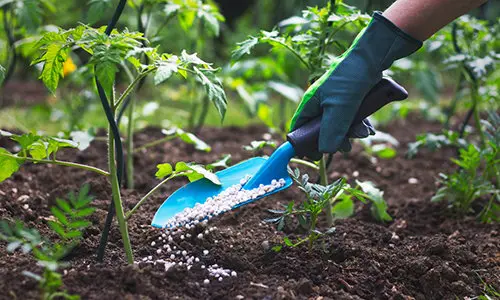
Climate Change
Don’t join the clique of climate change skeptics. It’s a real phenomenon that is impacting how we live and think.
Our activity on the soil and poor management of soil organisms can further deplete the ozone layers. When soil respires, it releases greenhouse gases into the atmosphere, including billions of tons of carbon oxide. If the soil is contaminated by hard chemicals, the gases it’ll release into the air will harm us to inhale. This is why you must ensure a healthy chemical content in the soil.
5 Ways to Improve Your Garden Soil
Now you know what activities to stop doing to your soil. Let me walk you through what things to do to improve soil fertility and health.
Adding Organic Matter
Adding organic matter, like fertilizers, helps improve soil nutrients and adjust the soil’s pH level. It’s important, however, to first carry out a soil test to know if the soil will need sulfur or lime. In addition, follow the direction for the non-chemical fertilizer you’ll use.
Mulching
Ensure you keep mulches on the soil. You can choose organic (shredded bark, grass clippings, hay, or straw) or inorganic (landscape fabrics, black plastic, gravel, or pebbles) mulches. These plants help reduce the amount and speed of water loss in the soil. They prevent the soil from exposure to the elements, including extreme heat and cold.
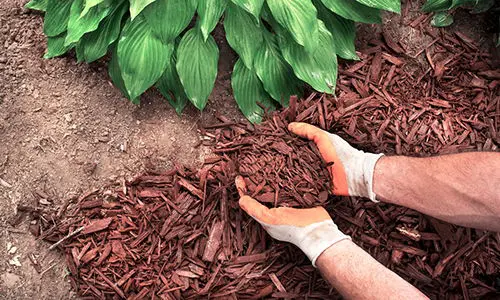
Know Your Soil
While loamy soil is considered the best garden soil, the type of plants you want to cultivate in your garden can sometimes determine which soil or soil mixture to go for. You should study soil type, nutrition, fertility capacity, and pH. If the pH is too low, your soil will experience a nutrient deficiency; the soil will be toxic if it’s in excess.
Install Catch Basin
Installing an underground catch basin helps control the amount of water in the soil. The collected water can be repurposed rather than allowing it to erode the topsoil. If you prevent excess rainwater from flooding the garden, the soil will maintain fertility and support plant growth.
Plant Enough Trees
Afforestation is one of the ways to conserve soil fertility. As a result, you can protect the garden soil from direct exposure to UV rays and the elements. Planting trees also encourages the soil’s capacity to absorb water while maintaining a healthy life for robust plant growth.
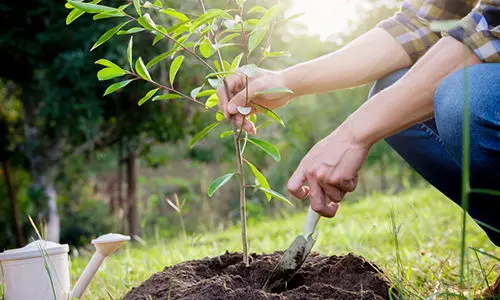
What is the best soil for the garden?
Choosing the right planting environment for a rich and healthy plant yield depends on cultivating an outdoor or indoor garden. Nonetheless, loamy soil has been regarded as the best garden soil. It contains a lot of organic matter, drains excess water well, and retains enough rainwater.
Is soil essential to the garden?
Yes, the soil provides the environment and foothold for the garden plants to thrive. The soil holds all the useful organisms and nutrients the plants need to survive. While it filters the rainwater, the soil also controls the amount of moisture that gets into the plants.
Soil is a natural body: it creates life from death.
When you have healthy soil, you can rest assured it’ll resist the threat of erosion, sequester carbon, cycle crop nutrients, and support root growth. It will perform better when it’s at its finest quality and condition. But its performance depreciates as its quality or health is negatively impacted.
But you’ve got a role to play in making these things happen. The first step is to stop what I call the ‘criminal activities against the soil.’
Don’t only focus on abundance. Think about the health and edibility of your harvest.
You may also like:
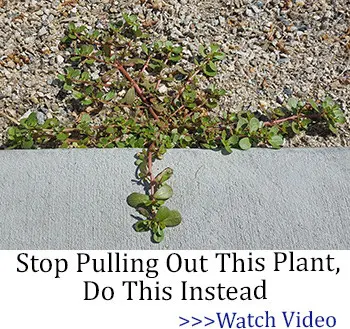 Boost Your Soil Quality With This Compost
Boost Your Soil Quality With This Compost
What Our Forefathers Did and Built Around the House (Video)
10 Vegetables That Are Too Easy To Grow Inside
How to Adjust the pH in Soil and Water for Abundant Harvests

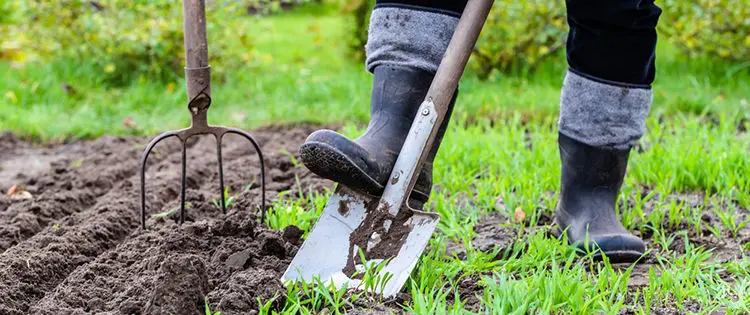








I purchased your product 2 days ago you never sent me a receipt or notification of delivery I paid $92 in Australian dollars which I would not have done if was shown the amount I am very disappointed This looks like a SCAM
Hi Sally,
Thank you for your interest in our work and message.
You will receive an email from us with your order details.
Let us know if you need further assistance.
God bless,
The Self-Sufficient Projects Team